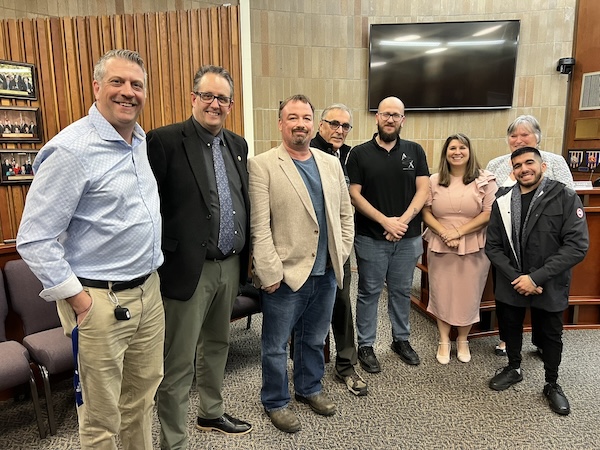A review released Monday about the United Nations Relief and Works Agency, the sprawling bureaucracy that for decades has played a central role in the lives of Palestinians, said Israel has not provided adequate evidence to demonstrate that UNRWA workers engaged in terrorism.
The review, headed by a former French foreign minister, dismissed Israel’s claims that UNRWA workers in Gaza were engaged in terrorist activities, including the Oct. 7 pogroms. It did, however, recommend several steps to ensure neutrality, transparency and third-party monitoring of UNRWA activities.
Regardless of the specifics in this particular accusation, UNRWA is deeply problematic. Critics contend that its mission is to perpetuate Palestinian statelessness and discontent, rather than ameliorate these problems.
Many Jewish and pro-Israel voices have long pointed to UNRWA, as well as the annual procession of anti-Israel votes at the United Nations General Assembly, among other examples, as “proof” that the United Nations is hopelessly anti-Israel, if not antisemitic.
This may or may not be true. In any event, the answer is to fix the United Nations, not bury it.
Hyperbolic, disproportionate, often ludicrous attacks on Israel at the General Assembly and from countless UN bodies undeniably demonstrate a peculiar obsession with this one (Jewish) country to the detriment of other serious issues. However, this inappropriate and biased approach must not blind us to the irreplaceable value of the organization that was envisioned as a world parliament.
Coincidentally, a new poll of Canadians and Americans indicates massive dissatisfaction with the organization – and rightly so.
The Association for Canadian Studies and the Metropolis Institute engaged the pollster Leger to survey North Americans on their opinions toward the United Nations. The poll was conducted about four months after the Oct. 7 attacks, and indicates that just over one-third of Canadians and just under one-third of Americans trust the UN.
Jack Jedwab, president and chief executive officer of both of the survey’s sponsoring organizations, noted a particular incongruity in the results. While only around one-third of respondents “trust” the United Nations, much higher numbers of people hold a “net positive opinion” of the body. In both countries, a majority – 58% of Canadians and 54% of Americans – view the organization as more positive than negative.
This is encouraging, because it suggests that, while people have issues with the UN in practical terms, we are not ready to give up on the potential of the UN or the ideals upon which it was founded.
There are many reasons to criticize the United Nations, but the clearly biased anti-Israel resolutions and reports that grab headlines obscure a panoply of crucial, often lifesaving programs and services delivered by UN organizations like the World Health Organization, the World Food Program, UNICEF and UNESCO.
To put this in a context that perhaps makes sense on a more localized level, giving up on the UN would be like eliminating the sewer systems, traffic lights and schools in your hometown because you can’t stand the mayor.
If we cannot muster idealism, let’s just be practical. Don’t take it from us, take it from Danny Danon, Israel’s former ambassador to the United Nations. Danon has a long history as a right-wing Israeli politician. In his 2022 book, In the Lion’s Den: Israel and the World, he reflects on his five years as ambassador, from 2015 to 2020.
He arrived, he admits, as a hawk and a hardliner, not expecting to fit into the world of diplomacy. Over his time there, he came to see the value of the UN, despite all the disappointments and wasted resources.
Even in the lion’s den at the head of the sprawling body, the General Assembly, Danon said it is possible for a seemingly unwelcome individual like Israel’s ambassador to “build bridges, forge friendships and create a space for understanding.”
The idea, expressed by some pro-Israel people, that Israel should simply walk away from the world body, would be to cut off our nose to spite our face. Why would we abandon the one small voice we have in that forum, surrendering it to the haranguing of Israel’s enemies without contest?
Likewise, if Canadians feel our government is not representing our values and ideals at the United Nations, we need to take that up with our elected representatives here and ensure that they do so. Throwing up our hands in surrender helps no one.
Is there a problem with UNRWA? Undeniably. Fix it. Is there a problem with the International Court of Justice? Many observers would say so. Fix it. Do numerous United Nations agencies obsess over Israel while millions around the world suffer in obscurity? Undoubtedly. Fix that too.
Is the United Nations perfect? It’s a ridiculous question. Nothing in human activity is perfect. But what is the role of Jews in the world, an obligation we reminded ourselves during our seders this week? Our obligation as Jews and as humans is to strive to make the world better – and, in that context, fixing the UN is central to that objective.
Is there a long way to go in this work? Yes. Are we free to abandon it? No.

